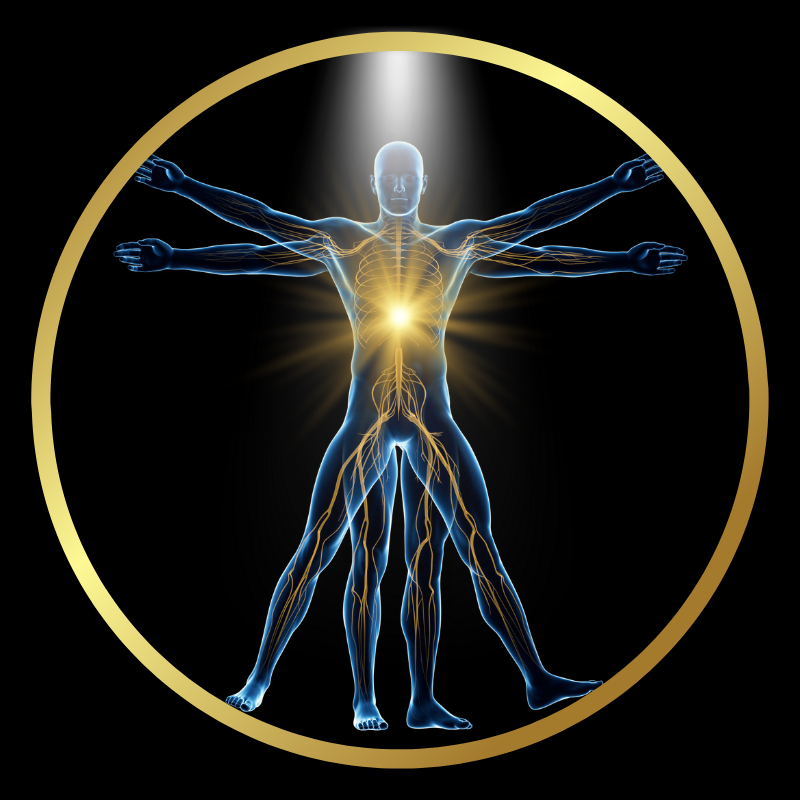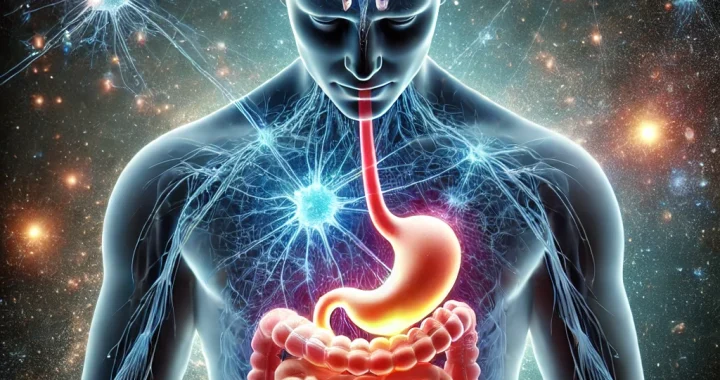
Our beliefs serve as the ultimate GPS tool.
They help to make sense of the world providing both purpose and direction. The statement “Man is what he believes” by Anton Chekhov – considered to be one of the greatest writers of all time, holds a strikingly profound truth to the probing question on every man’s lips; “WHO AM I?” If you have never questioned the very act of thinking, then I ask you to arm yourself with an open mind and I will reveal exactly how a set of beliefs can change your life.
“When we wholeheartedly believe in something, our minds comply.“
Our deep-rooted beliefs function as pre-set, organised lenses through which we perceive the world, both from an internal and external perspective. Think of them as ‘inner commands’ which instruct our brains on how to interpret our reality. When we wholeheartedly believe in something, our minds comply. Without a set of beliefs or the ability to tap into them, individuals often find themselves disorientated, confused and disempowered.
Beliefs arise from a complex accumulation of information which we encounter throughout our lives, starting from the earliest moments during our childhood.
Our beliefs provide a sense of belonging, they provide a deep sense of attachment towards our experiences, our environment, the knowledge we acquire, and even our ability to visualise – in essence, they contribute to our sense of Identity and connection to the world around us.
One universal misconception is that beliefs are unchanging, long-standing facts which shape who we are. In reality, beliefs are choices, and we hold the power to change them.
Our beliefs transmute into the world we inhabit.
The input we receive through our five senses, undergoes a filtering process and our beliefs determine which portions of this sensory information gain access to our conscious awareness. Changing our thoughts actually triggers an array of neuro-chemicals, which allows us to begin to receive new sensory information about our environment which was previously blocked by our central belief system. When we alter our thinking, our beliefs change and with them, also our behaviour and eventually our entire state of being.

The placebo effect
You’ve probably already heard of the placebo effect, but have you ever really questioned the magnitude of what it represents? Medical history is flooded with cases where placebos provide a profound influence on a huge variety of ailments. A remarkable instance involves a woman suffering from severe nausea and vomiting. Tests indicated patterns consistent with her complaints, but when she was presented with a “new, magical, extremely powerful” medicine which promised to cure her nausea, her symptoms completely vanished within minutes. Even more astonishing, subsequent tests indicated a normal gastric pattern, despite the fact that she had been administered a substance known to induce nausea. The syrup, paired with strong suggestions of relief from an authoritative figure, acted as a command to her brain, setting off a chain of biochemical responses within her body. This case highlights the powerful impact of placebos, which often prove to be more potent than the actual effects of medicine.
“Patient expectations and beliefs in whether a medicine will work, significantly impacts outcomes.”
Interestingly, part of the placebo effect alters how the disorder or illness is actually perceived by the individual. In other words, one’s beliefs and interpretations play a direct role in governing biological responses and indeed, behaviour. Another striking study involved a schizophrenic woman with bipolar disorder. Under normal conditions, her blood glucose levels remained normal. However, when she believed herself to be diabetic, her physiology transformed to match that of a diabetic, including elevated blood glucose levels. This is known as the Nocebo effect. Nocebos are associated with negative, life-threatening, or disempowering beliefs. Psychiatrist Arthur Barsky emphasises that patient expectations and beliefs in whether a medicine will work, significantly impacts outcomes.
Carefully designed research has shown that our interpretation of what we perceive can fundamentally alter our physiology. In fact, all medical treatments operate through the prism of our beliefs. All therapies, in addition to their specific effects, possess a hidden, symbolic influence on the psyche.
Our body’s biochemistry is rooted in our awareness. Belief-reinforced awareness becomes our biochemistry. Each and every cell in our body is acutely aware of our thoughts, feelings, and beliefs. There’s a saying, “Nobody grows old; when people stop growing, they become old.” If you believe you are fragile, your body unquestionably complies. If you believe you are tough, your body mirrors that belief. When you believe you are depressed, you encode your sensory input with that judgment and become the “interpretation” you internalise.
“Each and every cell in our body is acutely aware of our thoughts, feelings, and beliefs. “
Recent scientific literature aligns with the principles of the biology of belief, offering potential avenues for incorporating traditional belief systems into clinical mental health management. Our belief system is shaped by our experiences, filtered through our personalities. Our senses, which capture both inner and outer perceptions, possess significant brain potential. This leads to questions about how integration and acceptance of these perceptions form beliefs, and whether belief formation depends on the presentation of proof. Beliefs emerge from trusted information that is stored in our memories and then generalised. These beliefs influence moral judgment, decision-making, and psychopathological development.
To stabilise beliefs and respond to environmental changes, the entire brain must function. Various brain regions and neural circuits play crucial roles in establishing and executing beliefs and emotions. Frontal lobes hold a major role in shaping beliefs, integrating mental representations of the world with subcortical information. The amygdala and hippocampus contribute to the thinking process and execution of beliefs. NMDA receptors are involved in thinking and belief development. Beliefs that are challenged often become stronger, and new stimuli can distress the brain with existing patterns, releasing dopamine to transmit signals.
The Neurological Pathways of Belief
Research has shown that the medial prefrontal cortex processes belief valence, while the right temporoparietal junction and pre-cuneus are responsible for processing beliefs related to moral judgment. True beliefs are processed through the right temporoparietal junction. Belief judgment begins around the age of five, as evidenced by children’s judgment of belief questions in short stories. Studies suggest that dopamine levels are associated with paranormal thoughts, indicating the role of dopamine in belief development. Primitive brain mechanisms designed to assess environmental threats may play a part in psychiatric disorders, with beliefs affecting psychiatric symptoms through these brain systems. It is suggested that three brain structures, the prefrontal cortex, the basal ganglia, and parts of the limbic system, are involved in brain disorders related to threat assessment and self-defence. Understanding the mechanism of belief formation and its relevance to neurological functions and dysfunctions holds immense potential.
Perception and Biochemistry: The Fountain of Youth
The key to changing beliefs and, consequently, our body’s biochemistry is through perceptual shifts. Our innate desire to learn and grow leads to fresh perceptions. When we consciously welcome new experiences, acquire new skills, and alter our perspectives, our bodies can respond in novel ways, which is the true secret to youthfulness. Beliefs, as internal interpretations, hold the power to bring about remarkable transformations in our biochemical profile. So, if you find yourself endlessly searching for joy and peace, only to exclaim, “It’s nowhere to be found!” consider altering your interpretation from ‘NOWHERE’ to ‘NOW HERE.’ By introducing a gap, you shift your awareness, change your belief, and alter your biochemistry in an instant.
Orchestrating Reality: The Power of Belief
Everything exists as a matrix of pure potential, akin to molten wax or mouldable clay. We shape this matrix into our desires through our choices, guided by our beliefs, whether consciously or subconsciously. Recognising that we are integral to these ever-changing fields of energy, constantly interacting, gives us the power to unlock our potential. It’s our awareness of this profound truth that changes everything, transforming us from passive observers into powerful creators. Our beliefs become the script that writes, or rewrites, the code of our reality.
Our thoughts and beliefs are integral to the brain’s functioning. Neurotransmitters act as the words that the brain uses to communicate, with a continuous exchange of information facilitated by these molecular messengers. Exploring the mystery of this molecular symphony, guided by the magic of beliefs, and its dramatic impact on the brain’s biochemistry, promises an exciting and worthy intellectual challenge.
As Dr. Bruce Lipton states himself, “When you think of yourself as one singular human being, you would be more accurate in saying that you are a community of over 50 trillion cells,” all working in response to everything that you are consciously and unconsciously paying attention to. Guard your thoughts, become more aware of your inner world and you have the power to change everything in your life.




